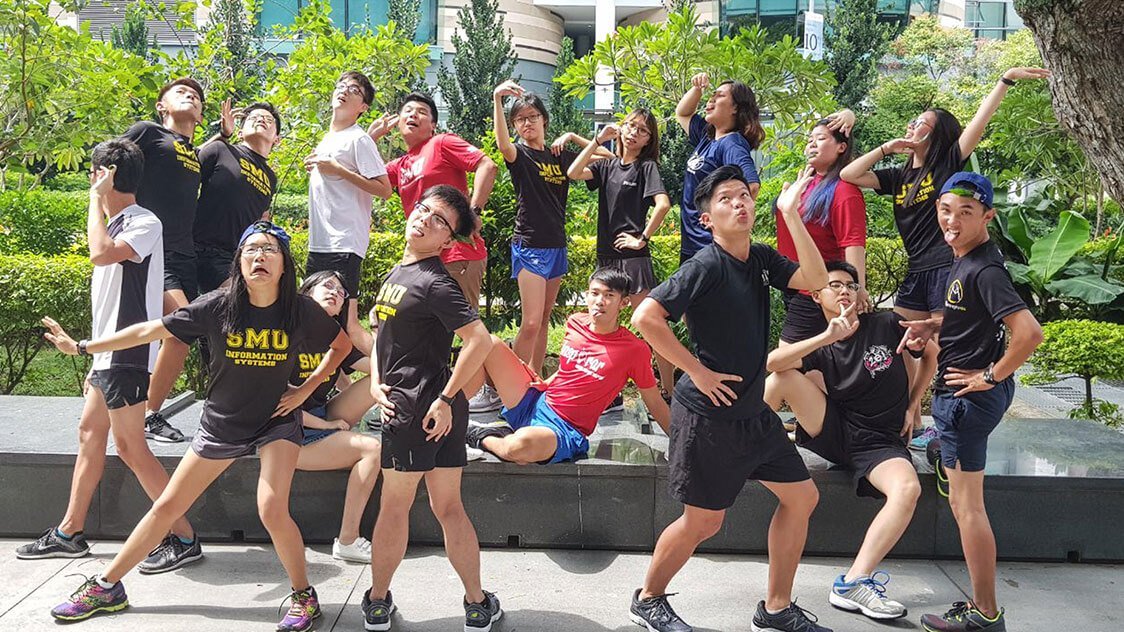
My decision to take on the next level of education at a local university was made while I was pursuing my diploma at Temasek Polytechnic. I made a promise to myself that I would work hard to make this a reality. Although I scored sufficiently well enough to enter a local university, I knew that with my grades it’d be tough for the highly competitive Bachelor of Accountancy or Business programmes. Business has always been my interest, even back in poly. It was a tough choice and I knew I had to really think carefully about the programme choices to apply for.
I did my research on programmes from National University of Singapore (NUS), Nanyang Technological University (NTU) and Singapore Management University (SMU). I wasn’t too keen on the engineering programmes at NUS, as this wasn’t my interest. However, NTU’s Computer Science and SMU’s Information Systems programmes caught my eye. With a number of my polytechnic friends enrolled in both programmes, I could easily get tips from them and find out more about what school life at both universities was really like.
Initially, I was quite hesitant to apply to SMU because of the admissions interview, its strong focus on class participation, and the cost of tuition fees, in comparison to NUS and NTU. Nevertheless, I decided to apply to all three universities that year. While I didn’t receive an offer from NUS, NTU’s Computer Science accepted me and even allowed me to do a minor in business. I did not have much interest in engineering, so I was quite glad that the school recognised my interest in business.
At that time, SMU hadn’t yet sent contacted me for the admissions interview, so I went ahead and accepted my place in NTU. It wasn’t long after that I received a reply from SMU to attend the interview for the Information Systems programme—I plucked up the courage and went for the interview.
I vaguely remember the question during my interview in 2015 being something along the lines of, “How many people do you think will arrive at Singapore Changi Airport by December 2015?” I was given 15–30 minutes to pen down my answer on paper, after which, I presented it to the interviewers together with the thought process behind my answer. I did not perform too well with this question. But, thankfully, I got another chance with the second round being focused on coding in Java. As I was taught basic Java programming back when I was taking my diploma, I managed to pass the coding test and, ultimately, received an offer letter.
This was when I found myself in a predicament—should I choose NTU’s Bachelor of Engineering (Computer Science) with a minor in Business or SMU’s Bachelor of Science (Information Systems)? Both schools have their own merits and both degrees provide a platform for business education in their own way—with SMU requiring all undergrads to complete a set of core business modules. While NTU and SMU are different in their style of teaching, both schools provide great opportunities for their students to shine. I was also caught between consideration factors such as distance, tuition fee, class participation, hall life and student life.


I decided to focus on the skills that would benefit me in the future—I wanted to be able to step out of my comfort zone and improve my social skills and presentation skills. I also considered the distance of each university. And finally, I thought about the future industry I wanted to work in—while NTU’s Computer Science leans towards the more technical IT and Engineering industries, SMU’s Information Systems offers more opportunities in both Business and IT due to the nature of the curriculum. The decision was clear once I weighed these factors; and thus, I decided to go for SMU’s Information Systems programme.


In 2017, I finally began my freshman year at SMU’s School of Information Systems after serving my National Service. School life has been great and I’ve met lots of great friends who have helped me along my journey. Although the workload feels insane, the great friends I’ve made most definitely help balance it out. I’ve also come to the realisation that university is not all about grades, there are many other skills that matter as well, and it’s really the learning process that is going to be the biggest takeaway.

